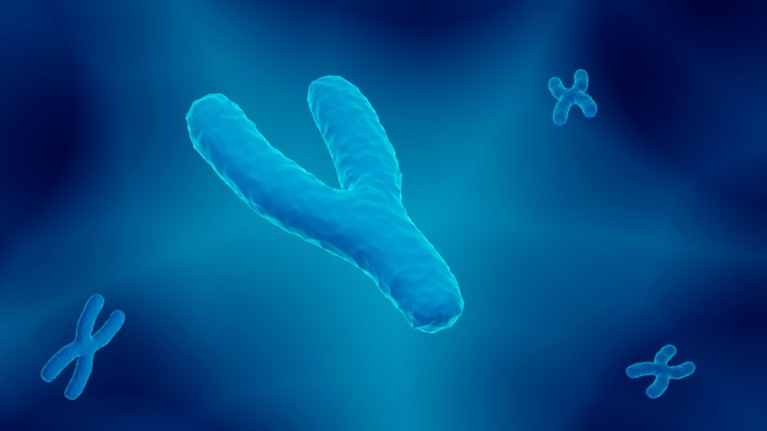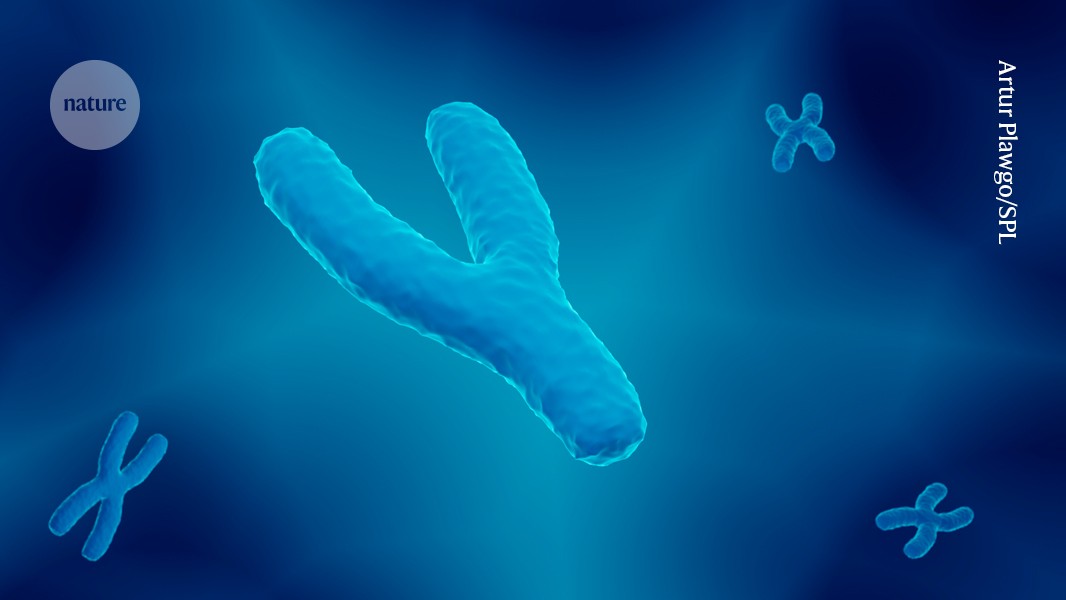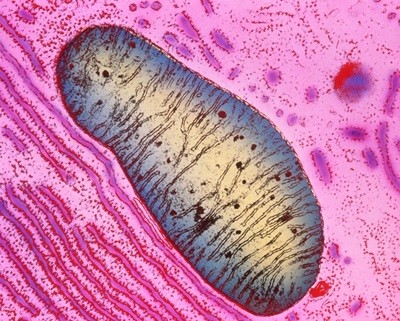
The loss of the Y chromosome (artist’s illustration) from one cell might spread ‘contagiously’ to adjacent cells. Credit: Artur Plawgo/Science Photo Library
The cancer cells of some men feature a striking mutation: their Y chromosome is missing altogether. Now, tantalizing research suggests that this mutation can spread ‘contagiously’ from tumour cells to immune cells, which lose their cancer-fighting prowess after their Y chromosome disappears.
The evidence for the contagion mechanism is not definitive. But the work provides strong evidence that losing the Y chromosome makes cancer cells more aggressive — and that immune cells that lack y chromosomes are less effective. These findings could explain the authors’ observation that tumours missing the Y chromosome tend to be deadlier than those retaining it. The results are published on 4 June in Nature1.
“One thing is clear,” says Dan Theodorescu, a co-author of the paper and a cancer biologist at the University of Arizona, Tucson. “If you take cells and you knock out the Y chromosome, bad stuff happens.”
The question of Y
Scientists have known for decades that cancer cells often lose their Y chromosome, but the effects of this loss were unclear. In 2023, Theodorescu’s group showed that the Y-loss mutation raises bladder cancer’s aggressiveness in humans2. The Y chromosome can also disappear from immune cells as men age, raising the risk of death from cancer3.
Cancer cells ‘poison’ the immune system with tainted mitochondria
Theodorescu and his team began the latest study by analysing gene-expression data from a massive repository of cancer-cell genomes. They found that men — across multiple types of cancer — died sooner if their tumours had lost their Y chromosome than men whose tumours still had it.
The group then showed that the Y-loss mutation occurs in both the cancer cells themselves and in the immune cells that invade tumours to defend the body. The mutation’s effects on gene expression indicated that, in cancer cells, it increases the number and severity of other mutations. It also causes changes that probably make the cancers less detectable by the immune system.
But the lack of a Y chromosome has a different effect on immune cells: it pushes them towards non-active and immune-suppressing states, rendering them less able to fight cancers. “If you put those two together,” says Theodorescu, “that’s really bad”.
A ‘contagious’ mutation
Strikingly, the researchers observed a correlation between the extent of Y loss in malignant cells and the extent of Y loss in immune cells inside the same tumour.
One possibility, says Theodorescu, is that “some weird chemoattraction” selectively draws Y-less immune cells from the blood into the tumour. The more provocative possibility is that malignant cells with the Y-loss mutation cause the same defect in nearby immune cells.



